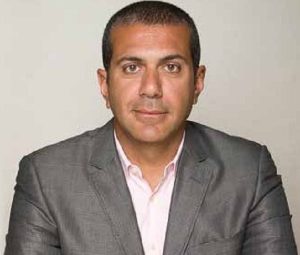Entrepreneur Bassim Haidar is currently one of Africa's most prominent billionaires--but this hasn't always been the case. Haidar, a Lebanese national, was born in Nigeria and lived there until he was 10. After his family moved to Lebanon, he finished school and attended Beirut University College. What motivated him to start his first business at age 20, however, was quite simple: he was looking to restore his family's lost fortune, a task he has now completed many times over.
Haidar has spent his 20-plus year career focused on the African market. He co-founded his first company, Intercomm Ltd., in 1991 to focus on telecom equipment and radio links; he continued to grow Intercomm while also founding his second company, GMT, in 1995. GMT has gone on to become the leading integrated procurement, finance and logistics provider in West Africa.
Haidar went on to found Channel IT in 2003. The Nigerian-based company was initially intended to cater to and provide supplies and services for the telecom industry in the African country; today, Channel IT has expanded to 19 countries and is a major player in infrastructure and services across Africa and the Middle East.
His most recent venture, Channel VAS, was founded in 2011 and has become the preeminent vendor for mobile financial and Fintech services in emerging markets global. It has a current reach of over 550 million customers in over 30 countries via 27 MNOs--and is able to lend an incredible $4.5 million daily.
While Haidar has come to be recognized as on the most successful innovators in his industry, his focus is not just on business success. He was recently appointed as a member of Amnesty International's Global Council.
Reflecting on his career during an recent interview with CNBC from Davos, Haidar reaffirmed his commitment to doing business on the African continent: "Africa is not the easiest place to do business but it's the most exciting." He went on to note that is partially because--unlike in developed countries--technology places a different role in the emerging economies of Africa: "Technology in Africa is not a disruption. Technology enhances people's life, it gives them access to things they never thought possible"--such as the loans enabled by Channel VAS.
























